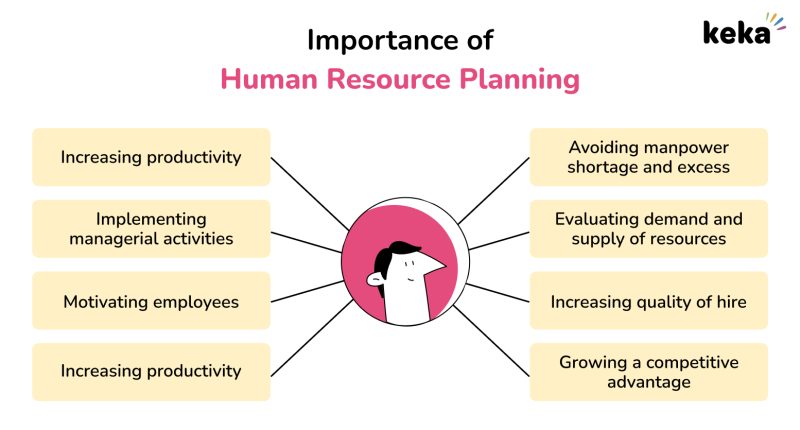What roles do these organizations play in shaping the global business landscape
International organizations play crucial roles in shaping the global business landscape by setting rules, standards, and frameworks that govern international trade, investment, and economic cooperation. Here’s how these organizations influence global business operations:
1. World Trade Organization (WTO)
- Trade Rule-Making: The WTO establishes global trade rules that ensure trade flows as smoothly, predictably, and freely as possible. These rules cover various aspects of trade, including tariffs, subsidies, and trade barriers, which directly affect how businesses operate internationally.
- Dispute Resolution: The WTO provides a platform for resolving trade disputes between member countries, which helps maintain a stable and predictable trading environment. Businesses benefit from this stability, as it reduces the risk of sudden changes in trade policies.
- Trade Facilitation: The WTO’s Trade Facilitation Agreement (TFA) aims to simplify and streamline customs procedures, reducing delays and costs for businesses engaged in international trade.
2. International Monetary Fund (IMF)
- Financial Stability: The IMF works to ensure global financial stability by providing financial assistance to countries facing economic crises. By stabilizing economies, the IMF helps maintain a stable global economic environment, which is crucial for businesses that operate internationally.
- Economic Surveillance: The IMF monitors global economic trends and advises member countries on economic policies. This surveillance helps businesses understand macroeconomic conditions and anticipate changes that might affect their operations.
- Capacity Building: The IMF provides technical assistance and training to countries to help them manage their economies better, which can lead to improved business environments and opportunities for foreign investment.
3. World Bank Group
- Development Financing: The World Bank provides funding for development projects in emerging markets and developing countries. This funding supports infrastructure, education, healthcare, and other sectors, creating new business opportunities and improving the overall business climate in these regions.
- Private Sector Development: The International Finance Corporation (IFC), a member of the World Bank Group, focuses on private sector development. It provides investment and advisory services to businesses in developing countries, helping them grow and create jobs.
- Policy Advice and Research: The World Bank conducts research and provides policy advice to governments, helping them create conditions that attract foreign investment and support private sector growth.
4. United Nations (UN)
- Global Standards and Norms: The UN sets international standards in areas such as human rights, labor, and environmental protection. Businesses operating globally must comply with these standards, which shape corporate social responsibility (CSR) practices and influence consumer perceptions.
- Sustainable Development Goals (SDGs): The UN’s SDGs provide a framework for businesses to align their operations with global development priorities. Companies that integrate SDGs into their strategies can improve their sustainability and appeal to socially conscious consumers and investors.
- Peacekeeping and Security: The UN plays a key role in maintaining international peace and security, which is essential for creating stable environments where businesses can operate without the threat of conflict or instability.
5. Organization for Economic Co-operation and Development (OECD)
- Economic Policy Coordination: The OECD promotes policies that improve the economic and social well-being of people around the world. By coordinating economic policies among member countries, the OECD helps create a more predictable and harmonized global economic environment for businesses.
- International Taxation: The OECD sets guidelines for international taxation, including the Base Erosion and Profit Shifting (BEPS) project, which aims to prevent tax avoidance by multinational corporations. These guidelines impact how businesses structure their global operations and manage their tax obligations.
- Corporate Governance: The OECD develops principles of corporate governance that promote transparency, accountability, and fair competition. These principles influence how businesses operate and are perceived by investors and stakeholders globally.
6. International Chamber of Commerce (ICC)
- Setting Business Standards: The ICC develops rules, guidelines, and standards that govern international business practices, such as the Incoterms® rules for international trade and arbitration procedures for resolving commercial disputes. These standards help businesses navigate the complexities of global trade.
- Advocacy for Global Trade: The ICC advocates for open and fair trade policies, representing the interests of businesses in global trade negotiations. This advocacy helps shape trade agreements and policies that benefit businesses globally.
- Dispute Resolution Services: The ICC provides arbitration and mediation services to resolve commercial disputes. These services offer businesses a reliable and efficient way to resolve conflicts, which is essential for maintaining strong international business relationships.
7. International Labour Organization (ILO)
- Labor Standards: The ILO sets international labor standards that businesses must adhere to, particularly regarding workers’ rights, fair wages, and safe working conditions. Compliance with these standards is essential for businesses to maintain their reputation and avoid legal issues.
- Corporate Social Responsibility: The ILO promotes decent work practices, which influence companies’ CSR strategies. Businesses that adhere to ILO standards are better positioned to attract socially responsible investors and consumers.
- Social Dialogue: The ILO facilitates dialogue between governments, employers, and workers to promote harmonious industrial relations, which helps create stable business environments.
8. World Intellectual Property Organization (WIPO)
- Intellectual Property Protection: WIPO administers international treaties that protect intellectual property (IP) rights, such as patents, trademarks, and copyrights. Businesses rely on these protections to safeguard their innovations and brand identities in global markets.
- IP Dispute Resolution: WIPO offers arbitration and mediation services for resolving international IP disputes. This helps businesses protect their IP assets without resorting to costly and time-consuming litigation.
- IP Policy Development: WIPO advises governments on IP policy, influencing the global IP landscape. Businesses benefit from strong IP policies that protect their investments in research and development.
9. Regional Trade Agreements (RTAs)
- Regional Economic Integration: RTAs, such as the European Union (EU), the North American Free Trade Agreement (NAFTA), and the Comprehensive and Progressive Agreement for Trans-Pacific Partnership (CPTPP), promote economic integration among member countries. Businesses benefit from easier access to regional markets, reduced trade barriers, and harmonized regulations.
- Supply Chain Optimization: By creating larger integrated markets, RTAs enable businesses to optimize their supply chains, reduce costs, and increase efficiency. Companies can leverage these agreements to source materials and components more cost-effectively and access a broader customer base.
- Regulatory Harmonization: RTAs often harmonize regulations across member countries, making it easier for businesses to comply with standards and operate across multiple markets without facing different regulatory regimes.
10. Financial Action Task Force (FATF)
- Combating Financial Crimes: The FATF sets global standards for combating money laundering, terrorist financing, and other financial crimes. Businesses must comply with these standards to avoid legal penalties and protect their reputations.
- Compliance with AML/CFT Regulations: The FATF’s Anti-Money Laundering (AML) and Counter-Terrorism Financing (CFT) regulations influence how businesses conduct their financial transactions, particularly in high-risk regions. Companies need to implement robust compliance programs to mitigate risks and ensure smooth operations.
11. G20
- Global Economic Governance: The G20, an international forum for governments and central bank governors from the world’s major economies, plays a key role in coordinating global economic policies. Businesses benefit from the G20’s efforts to promote global economic stability and address issues such as trade tensions, financial regulation, and climate change.
- Policy Advocacy: The G20’s discussions influence global economic policies that affect businesses, such as tax reforms, digital economy regulations, and trade agreements. Companies can align their strategies with the G20’s priorities to anticipate and adapt to policy changes.
12. United Nations Conference on Trade and Development (UNCTAD)
- Trade and Development Research: UNCTAD conducts research and analysis on global trade, investment, and development issues. Businesses can use UNCTAD’s insights to inform their strategies, particularly when entering emerging markets or developing countries.
- Investment Promotion: UNCTAD promotes foreign direct investment (FDI) in developing countries, helping businesses identify investment opportunities and navigate challenges in these markets.
- Policy Guidance: UNCTAD provides policy recommendations to governments on trade and development, which can lead to improved business environments and more favorable conditions for international trade and investment.
13. International Organization for Standardization (ISO)
- Global Standards Development: ISO develops and publishes international standards for a wide range of industries, including quality management (ISO 9001), environmental management (ISO 14001), and information security (ISO 27001). Businesses that adopt ISO standards can improve efficiency, quality, and customer trust, and facilitate entry into new markets.
- Market Access and Compliance: ISO standards are recognized globally, helping businesses meet regulatory requirements in different countries. Compliance with these standards can open doors to new markets and reduce the risk of non-compliance penalties.
Conclusion
International organizations play a multifaceted role in shaping the global business landscape by establishing rules, providing guidance, and facilitating cooperation across borders. By influencing trade policies, investment climates, regulatory standards, and dispute resolution mechanisms, these organizations create a framework within which businesses can operate more efficiently, expand into new markets, and mitigate risks. Understanding the roles of these organizations enables businesses to navigate the complexities of international markets and leverage global opportunities for growth and success.






